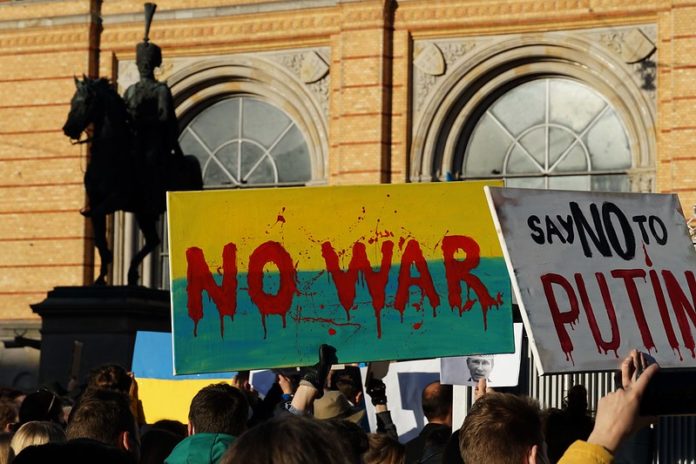
“We just want to go home as soon as we can.”
That is the wish of a Ukrainian couple I met on a street in Reims, France, in late May. Their city of Kharkiv, Ukraine’s second-largest, has been constantly bombarded by Russian forces since the beginning of the full-scale invasion on Feb. 24.
My Russian language skills are minimal, so we spoke through Google Translate. I didn’t know what to say, but I told them I have extended family in Ukraine and that my immediate family is involved in resettling refugees in Canada.
But I couldn’t tell them everything would be alright because I didn’t know. Have they returned home yet? Probably not — although it’s hard to know. But God willing, they return one day.
I was fortunate to visit western Europe for eight weeks this past summer. I travelled for pleasure, while millions of Ukrainians had no choice but to leave their homes and go to foreign lands.
Everywhere I went, there were small traces of a continent at war: a display of destroyed Russian tanks in Prague’s public parks; the abandoned check-in desk for Aeroflot, Russia’s national airline, at the Paris airport; notices posted at a U.K. customs office that read “if you’ve been a victim of a Russian war crime, please speak to U.K. police here.”
In every country I visited, the number of refugees was noticeable. According to estimates by the United Nations, over 7.7 million Ukrainians have been displaced since February.
Even before the war, I was good at picking out Ukrainians — mostly back in Winnipeg, home to many Ukrainian-Canadians like me. But as I walked the streets of Belgium or Austria, Ukrainian mothers and children were an ordinary sight.
Most fled Ukraine in recent months, leaving behind their husbands, fathers and brothers.
In London, I attended mass at the Ukrainian Catholic Cathedral of the Holy Family in Exile.
Exile — a fitting name considering the many in attendance that day were forced out of their homeland.
I met members of the Ukrainian and Belarusian diasporas in London at their weekly anti-war protest outside 10 Downing Street, the prime minister’s residence.
I often try to imagine the emotions of the Ukrainian refugees in their temporary foster countries. What do they think of the governments that welcomed them and the societies they have entered?
How do they feel knowing that Europe continues to finance the Russian war machine through oil payments every day? Or when they see Russians in the streets enjoying their vacations, never mind the oligarchs who are permitted to visit their lavish properties on the Mediterranean?
In all these ways, the war is still present, whether most Europeans recognize it or not.
The current war isn’t the worst event experienced by Ukrainians during the past century. It’s yet another example of Russian imperialism in Ukraine, bringing destruction and death to an otherwise vibrant culture and society.
Only now are the effects visible to the rest of the world.
